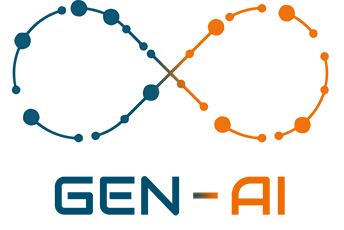Use Case 1: Subcontracting Agreement Evaluation
Description:
In the transportation and logistics sector, companies often rely on third parties for deliveries, storage, and other services. This use case automatically validates that contracts with subcontracted companies include essential clauses such as delivery commitments, Service Level Agreements (SLAs), and clear procedures for handling claims.
How It Works:
- Document Upload:
- Contracts with subcontracted companies are uploaded in PDF format.
- Example: Agreements with carriers, logistics operators, or storage providers.
- Rule Definition:
- Example JSON rules:
- Are delivery times defined and guaranteed?
- Are SLAs clearly specified, such as availability, response time, or performance indicators?
- Are procedures documented for handling claims in case of delays or damages?
- Are penalties for breaches of agreed terms detailed?
- Example JSON rules:
- System Analysis:
- The endpoint reviews each contract to ensure it complies with the defined rules.
- Report Generation:
- The report includes:
- Present and well-defined clauses.
- Missing or ambiguous elements.
- Example: The system identifies that a contract with a logistics operator lacks clear procedures for handling claims in the event of merchandise loss.
- The report includes:
Benefit:
Ensures comprehensive contracts aligned with operational goals, reducing legal and operational risks.
Use Case 2: Compliance with Customs Regulations
Description:
International transportation is subject to strict customs regulations that must be followed to avoid delays, penalties, or merchandise detentions. This use case automatically validates that documents related to international shipping comply with these regulations.
How It Works:
- Document Upload:
- Uploads include international shipping documents such as cargo manifests, commercial invoices, and export licenses.
- Rule Definition:
- Example JSON rules:
- Does the cargo manifest include an accurate description of the goods and quantities?
- Do commercial invoices specify correct values and comply with required formats?
- Are all necessary certificates and licenses for the shipment present?
- Does the document comply with specific regulations, such as CITES for restricted goods?
- Example JSON rules:
- System Analysis:
- The endpoint reviews the documents to detect errors or non-compliance with customs regulations.
- Report Generation:
- Details:
- Complete and compliant documents.
- Omissions or inconsistencies needing correction.
- Example: The system detects that a commercial invoice lacks the tariff codes necessary for customs compliance.
- Details:
Benefit:
Prevents delays and penalties in international shipments by ensuring documents are accurate and compliant.
Use Case 3: Insurance Documentation Review
Description:
Insurance policies associated with transportation and logistics must meet predefined conditions to ensure coverage in case of loss, damage, or delays. This use case automatically validates that such policies include all necessary elements.
How It Works:
- Document Upload:
- Uploads include insurance policies related to shipping or transportation.
- Example: Insurance for maritime, air, or ground cargo.
- Rule Definition:
- Example JSON rules:
- Does the policy detail coverage conditions such as loss, damage, or delay?
- Are liability limits and applicable exclusions mentioned?
- Are procedures for filing claims included?
- Are the responsibilities of the insured and insurer defined?
- Example JSON rules:
- System Analysis:
- The endpoint reviews each policy to ensure it meets established requirements.
- Report Generation:
- Details:
- Complete and compliant policies.
- Missing or ambiguous elements requiring correction.
- Example: The system identifies that an insurance policy lacks procedures for filing claims, which could hinder incident management.
- Details:
Benefit:
Ensures insurance policies comply with necessary conditions to protect the company’s interests in case of incidents.
Common Benefits of the Three Use Cases
- Guaranteed Compliance:
- Ensures contracts, customs documents, and policies meet regulations and international standards.
- Risk Reduction:
- Identifies omissions or issues before they cause legal conflicts, penalties, or operational interruptions.
- Operational Efficiency:
- Automates document validation, significantly reducing manual review time.
- Clear Reporting:
- Provides detailed results to facilitate issue resolution and decision-making.
- Scalability:
- Ideal for companies managing multiple contracts, international shipments, and insurance policies.
Example Report
Subcontracting Agreement Evaluation:
- Contracts Reviewed: 15.
- Fully Compliant: 12.
- Deficiencies Identified:
- 2 contracts lack penalties for breaches of delivery times.
- 1 contract does not mention procedures for handling claims.
- Recommendations:
- Update incomplete contracts with the necessary clauses before signing.
Conclusion
This endpoint optimizes document validation in the transportation and logistics sector, from subcontracting agreements to customs documents and insurance policies. Its ability to detect errors and generate detailed reports helps companies minimize risks, ensure compliance, and maintain smooth, efficient operations.


